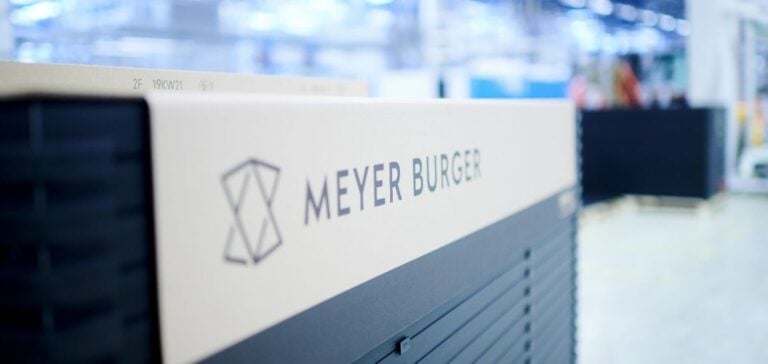Meyer Burger Technology AG, specialized in the production of high-performance photovoltaic modules, announced an extension and increase of its bridge loan agreement. Initially concluded with an ad hoc group of bondholders, this agreement raises the total amount to USD 59.5 million, providing the company with enhanced financial flexibility. This initiative aims to support the ongoing strategic merger and acquisition (M&A) process involving several interested parties.
The updated agreement provides immediate access to a tranche of USD 11.2 million, complemented by two additional sub-tranches totaling USD 22.4 million, subject to conditions. Moreover, the maturity date for all tranches has been extended to February 14, 2025. According to Meyer Burger representatives, this financial restructuring is part of a strategy to strengthen the company’s market position and to explore alternative options should the M&A process fail.
Negotiations with Bondholders
As part of this agreement, MBT Systems GmbH, a subsidiary of Meyer Burger, is convening meetings of its 2027 and 2029 convertible bondholders. The objective is to seek approval to postpone interest payments due in November 2024 and January 2025 until the end of February 2025. This proposal also includes reducing the notice period for bondholder meetings to five calendar days.
The ad hoc group of bondholders, which plays a key role in the company’s financial support, has significantly contributed to the ongoing financial restructuring. This support is seen as a preventive measure to stabilize operations while facilitating strategic development.
Production and Expansion in the United States
On the operational side, Meyer Burger continues to invest in its factory in Goodyear, Arizona. The first production line of high-performance photovoltaic modules, operating at full capacity, is dedicated to supplying modules to DESRI, the company’s main customer. However, DESRI recently expressed doubts about their initial agreement, and both parties are in discussions to establish a new contractual framework.
Simultaneously, the second production line at the Goodyear facility is progressing, aiming for an annual capacity of 1.4 gigawatts by the end of 2025. This expansion is part of a broader strategy to meet growing demand in the North American market, supported by local renewable energy incentives.
A Changing Market
In a global energy transition context, Meyer Burger relies on its advanced technologies to strengthen its competitiveness. The pursuit of strategic partnerships through the M&A process reflects the company’s ambition to consolidate its position in a rapidly evolving sector. However, the success of this strategy will largely depend on the company’s ability to secure strong financial and commercial agreements in the coming months.






















